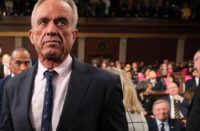President-elect Donald Trump’s choices for his administration’s top positions have garnered mixed reactions and even caused shock among Washington insiders, particularly within his own party. His selections have faced scrutiny and uncertainty, with the most controversial among them being his picks for Attorney General and Secretary of Defense.
Trump’s nominee for Attorney General, former Republican Representative Matt Gaetz, has been the subject of an ongoing House Ethics Committee investigation over allegations of sexual misconduct and obstruction. This choice has attracted criticism from both political parties. Meanwhile, Trump’s Defense Secretary pick, Pete Hegseth, an Army combat veteran and ex-Fox News anchor, is under public investigation over sexual assault allegations, causing widespread concern. Furthermore, Trump’s choice of Tulsi Gabbard, a former Democratic Representative, for the position of National Intelligence Director has been met with criticism due to her lack of intelligence background and her controversial views on Russia and other U.S. adversaries.
Connecticut’s Democratic Representative Jim Himes voiced his concerns on CBS’s “Face the Nation” about the qualifications of Trump’s picks. He particularly questioned the choice of Gabbard, emphasizing that experience was essential for such a significant role. Himes also criticized the qualifications of Gaetz and called for a thorough examination of the pending House Ethics Committee report on him.
Despite the mixed reactions to some of Trump’s picks, Himes did offer commendation for some selections. He expressed satisfaction with the nomination of Marco Rubio for Secretary of State, John Ratcliffe for the CIA, and Mike Waltz as national security adviser. He described these nominees as serious individuals with substantial experience.
Himes also sent out a stern warning to Republican senators about their role in the confirmation process. He stressed the historical implications of their decisions, particularly with controversial nominees like Gaetz, Robert Kennedy, and Gabbard.
Sue Gordon, who served as the Principal Deputy Director of National Intelligence under Trump, emphasized the importance of thorough vetting in the nomination process. This comes in light of a New York Times report suggesting that Trump’s team might use a private firm instead of the standard FBI procedure for vetting nominees. Gordon warned against this strategy, stating that it could potentially harm the institution and pose a risk to America.
In the meantime, a non-partisan group assisting with presidential transitions, the Partnership for Public Service, confirmed that the Trump team had not yet signed paperwork allowing for security clearances and background checks to take place. Gordon expressed her concern over this delay, stating that it seemed misguided, especially given the lack of experience among some of the nominees.
This unfolding situation with Trump’s Cabinet and senior staff picks continues to draw attention and spark debates, reflecting the uncertainty and high stakes in Washington’s political landscape.





